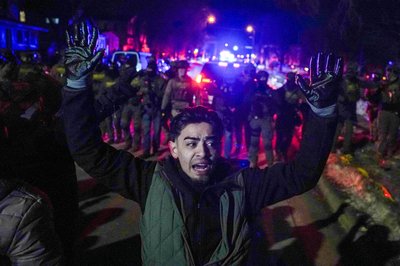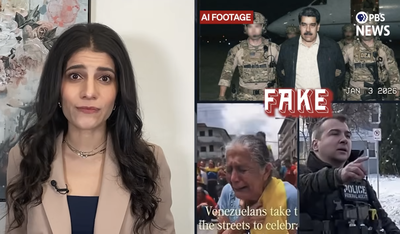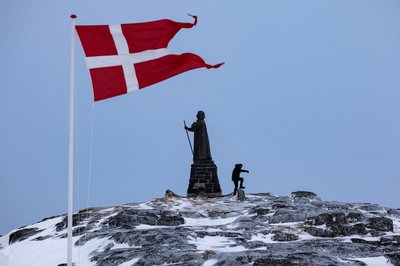Summary
Tiffany Crutcher, a native of Tulsa and a civil rights activist whose twin brother, Terence Crutcher, was shot and killed by a police officer in 2016, joins Yamiche Alcindor to discuss the Tulsa massacre, how it still affects the local Black community, and what reparations the community desires.- Crutcher's great-grandmother fled Tulsa during a concerted attack against the Black community of Tulsa in 1921. During the attack, anywhere from 74 to 300 Black Tulsans were killed, hundreds more were hospitalized and up to 6,000 people were rounded up by officials and put into internment camps.
- The attack also destroyed many Black homes and businesses, ending a business district that was once known as "Black Wall Street."
- Crutcher suggests that more needs to be done to atone for the attack, though does mention an apology from a National Guard officer for the Guard not doing enough 100 years before was a "powerful moment."
Five Facts
- Who is interviewed in this piece and why?
- What happened in Tulsa 100 years ago?
- When was Terence Crutcher shot and killed by police?
- How does Tiffany Crutcher connect the events from 100 years ago to civil rights struggles today?
- Why is the loss from 100 years ago still felt today, according to Crutcher?
Focus Questions
What do you think is the best way for communities to respond to difficult or harmful episodes in their histories? Media literacy: How did they cover it? Read the headlines and more from the front page of the Tulsa World printed during the attack. Then discuss: How does the writing reflect the biases of the authors? What do you know now about Tulsa that isn't accurately reflected on the front page of the paper? To explore more ways important historical moments were covered at the time, visit our site, Journalism in Action .
For More
- The story of the Tulsa Massacre is told in the new PBS special, "Tulsa, the Fire and the Forgotten," which is available here .
- This in-depth New York Times interactive feature covers the actual attack and the destruction caused in detail.
- You can watch interviews with survivors of the Tulsa Massacre here:
- If time permits, you may also want to watch and discuss the following video about community expectation after Derek Chauvin's conviction for the murder of George Floyd:
Floyd's supporters hope to see systemic change emerge from guilty verdict in Chauvin trial





